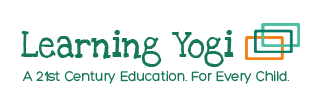21st century education. For every child.

In the rapidly evolving landscape of the 21st century, traditional education models are facing unprecedented challenges. The emergence of technology, globalization, and the changing nature of work demands a new approach to education.
How do 21st century skills help children deal with the challenges
of today’s world?
The digital revolution has transformed every aspect of our lives. 21st-century skills equip students with digital literacy, technological proficiency, and critical thinking abilities necessary to navigate this digital age. By integrating technology into the classroom, students develop essential skills such as information literacy, online collaboration, and adaptability to technological advancements.
In an era abundant with information, critical thinking and problem-solving skills have become paramount. 21st-century education emphasizes the development of these skills, enabling students to analyze complex problems, think creatively and develop innovative solutions. These skills cultivate independent and analytical thinkers who are better equipped to address the challenges of the modern world.
Collaboration and Communication
The ability to collaborate effectively and communicate across diverse platforms is crucial for success in the 21st century. Modern workplaces emphasize teamwork and global connections. By incorporating collaborative projects and fostering effective communication skills, education prepares students to engage in meaningful interactions, embrace diverse perspectives, and work harmoniously in a globalized society.
The Atlas Mission™ is a groundbreaking new educational game for kids that is available on iPads, iPhones, Android tablets, and phones. The game involves your 3 – 7 year old child taking part in an epic adventure along with his or her friend Atlas Finch™, the traveling Robot!
Unlocking the Potential of Early Age Learning
Early-age learning sets the stage for a child’s educational and personal development. By recognizing the innate curiosity and natural inclination of children to explore, we create an environment that stimulates their thirst for knowledge. Self-directed learning empowers children to take charge of their educational journey, fostering a sense of ownership and motivation.
The Power of Fun Learning
Incorporating fun into the learning process enhances engagement and retention. Fun learning activities promote active participation, creativity, and imagination. When children enjoy what they are doing, they become more motivated, eager to learn, and better equipped to retain information. By infusing joy and excitement into the learning experience, we can create an atmosphere where children thrive and develop a positive attitude towards education.
Empowering Children Through Self-Directed Learning
Self-directed learning encourages children to take an active role in their education. By providing opportunities for exploration and discovery, we enable them to pursue their interests and develop their unique strengths. This approach promotes critical thinking, problem-solving skills, and independence. As children make choices, set goals, and evaluate their progress, they develop valuable life skills that extend beyond the classroom.
Early childhood education is a critical phase in a child’s development, shaping their attitude towards learning and setting the stage for future academic success. By embracing self-directed fun learning, we empower children to take ownership of their educational journey, fostering a lifelong love for learning.

Copyright © 2023 Learning Yogi. All rights reserved.